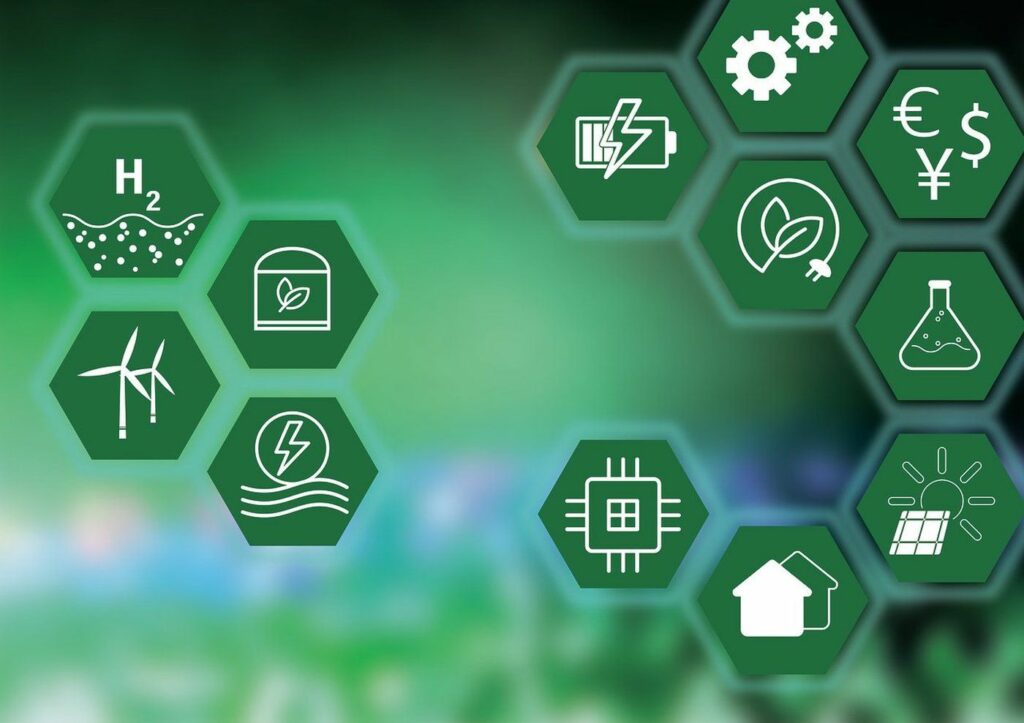The march to a net zero future has received a boost with India announcing a suite of green hydrogen plans.
India has grand plans for transitioning to a green hydrogen energy.
The Green Hydrogen Policy put out by the Ministry of New and Renewable Energy (MNRE) envisages the production of 10 million tons of green hydrogen by 2030 with half of that being used as a substitute for fossil fuels in transport and in the hard to abate industrial sectors. The other 5 million tons would be earmarked for export.

The world urgently needs to stop using fossil fuels and the window of opportunity of saving mankind is closing rapidly.
The plan requires a whole-of-government approach. Accordingly an Empowered Group has been put in place to coordinate.
Financial incentives and programs are being developed by various departments.
These are essential for giving investors the confidence needed for rapid private investment in what is currently an expensive sector.
It is hoped that green hydrogen production, supply, and uses would create the ecosystem and the domestic capacities for rapid scaling up by the end of this decade.
This would help accelerate India’s journey to net zero as green hydrogen offers promise as a technically feasible substitute for fossil fuels in industrial processes and transport where renewable electricity cannot.
For the production of green hydrogen, Rs 13,050 crores (USD$1.62 billion) in financial incentives have been announced and another Rs 4,440 crores (USD$533 million) for the production of electrolysers.
Green hydrogen production incentives will start at Rs 50 (USD$0.60) per kg in the first year then be reduced to Rs 40 (USD$0.48 ) in the second year and Rs 30 (USD$0.36) in the third and final year.
Electrolyser production incentives will be similarly graded down over five years. Firms would become eligible for these incentives through a bid process.
The scramble to hop aboard the green hydrogen bandwagon has begun with numerous private firms such as Reliance, Adani, ReNew Power and L&T lining up for a piece of the action. Reliance wants to produce green hydrogen for $USD1 a kg by 2030.
Ten states have also been identified as potential production hubs.
Gujarat is leading the way providing leading energy companies such as Reliance and Adani with land required for producing green hydrogen and generating solar power needed to produce it.
Karnataka has similar plans. Maharashtra has unveiled its own green hydrogen program with an outlay of over Rs 8,000 crores (USD$960 million). Kerala aims to become a net carbon zero state by 2050.
It’s important, however, to reduce costs across the full supply chain for different uses of green hydrogen to get to net zero quickly.
Three ministries — Steel, Road Transport and Posts, Shipping and Waterways — have already had funds allocated for initiating projects. In addition Rs 450 crores (USD$480 million) has been provided for research and development projects by inviting proposals
The next step is to generate demand for production.
The Maharashtra government provides a subsidy of Rs 50 (USD$0.60) per kg for the blending of green hydrogen into gas. It’s also providing 30 percent of the funds for 20 hydrogen refuelling stations. There is also a capital subsidy for 500 hydrogen fuel cell passenger vehicles; Rs 60 lakhs (USD$72,000) per vehicle or 30 percent of the capital cost, whichever is lower.
Green hydrogen is just the beginning. The production of green ammonia using green hydrogen is also envisaged. Green ammonia can give us green fertiliser, green shipping and green electricity for meeting seasonal peaks.
India hopes its green hydrogen mission will make it a globally competitive producer and consumer by 2030. It could then be well placed to move towards becoming a carbon net zero economy.
Ajay Shankar is a Distinguished Fellow at the The Energy and Resources Institute, New Delhi.
Originally published under Creative Commons by 360info™.